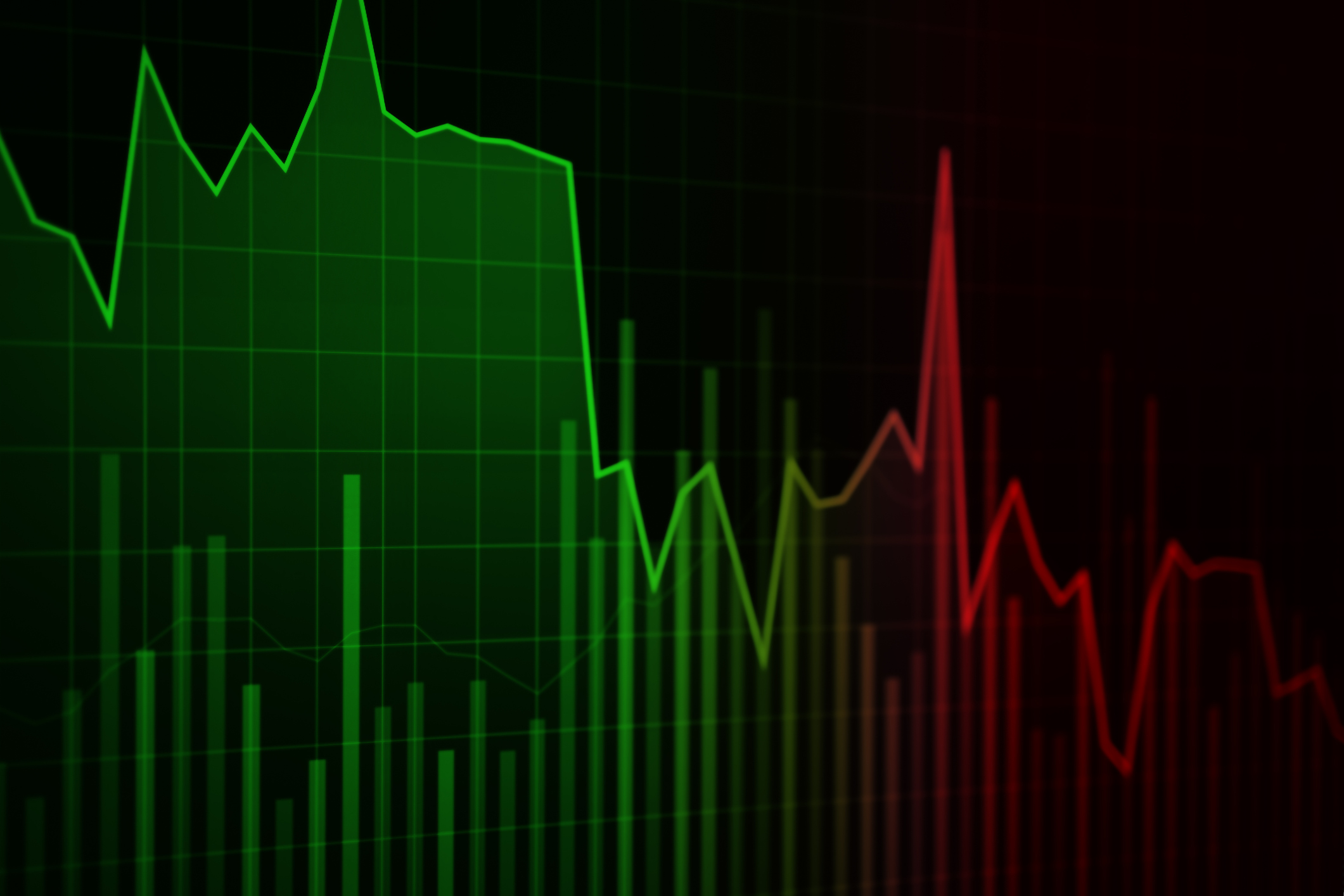Stock Market Trading Hours: What Time Is the Stock Market Open Today?
When does the market open? While the stock market does have regular hours, trading doesn't necessarily stop when the major exchanges close.


David Dittman
When does the market open? It's a simple question, but the answer is becoming more and more complex. For purposes of our discussion, all times are Eastern unless otherwise noted.
Regular trading hours for the U.S. stock market, which includes the Nasdaq Stock Market (Nasdaq) and the New York Stock Exchange (NYSE), are 9:30 am to 4 pm, except on stock market holidays, but this could be changing.
On March 7, Nasdaq President Tal Cohen announced that the stock exchange operator is in discussions with regulators, investors and stakeholders about introducing 24-hour trading five days a week on the Nasdaq Stock Market.

Sign up for Kiplinger’s Free E-Newsletters
Profit and prosper with the best of expert advice on investing, taxes, retirement, personal finance and more - straight to your e-mail.
Profit and prosper with the best of expert advice - straight to your e-mail.
Expanding regular trading hours requires regulatory approval as well as "alignment with critical industry infrastructure providers." Nasdaq expects to complete those processes in the second half of 2026.
Regular trading hours for the U.S. bond market are 8 am to 5 pm. The bond market observes 10 stock market holidays plus two more, Columbus Day and Veterans Day.
There are also several early closure days, such as the day after Thanksgiving (Black Friday), which typically fall on either side of other holidays. On these days the U.S. stock market usually closes at 1 pm, the bond market at 2 pm.
What are pre-market, after-hours and overnight trading?
Trading also happens outside of these regular stock market trading hours. On days with a regular session, for instance, there are "pre-market" and "after-hours" trading sessions. Some brokerages are now offering "overnight" trading too.
Pre-market trading happens before the market opens. Hours may vary among brokerage firms, but pre-market trading can begin as early as 4 am and run until the opening bell rings at 9:30 am.
After-hours trading starts when the closing bell rings and typically runs from 4 pm to 8 pm.
Pre-market and after-hours trading are performed on "electronic communications networks," or ECNs, and directly pair buyers and sellers rather than using a middleman. This kind of trading used to be available only to large institutional investors.
Online brokers and trading platforms such as Fidelity and Charles Schwab facilitate it for individual investors too.
Overnight trading is the latest response by online platforms to ever-increasing demand, with some brokerages offering investors the opportunity to trade 24 hours a day.
Interactive Brokers supports trading of U.S. stocks and ETFs from 8 pm to 3:50 am, with the first session beginning on Sunday at 8 pm and the last session ending on Friday at 3:50 am. Robinhood Markets clients can trade select stocks and ETFs 24 hours a day, five days a week, from Sunday at 8 pm through Friday at 8 pm.
Charles Schwab has expanded its 24-hour trading platform to include all stocks listed on major U.S. indexes as well as hundreds of ETFs. Webull recently opened its 24-hour platform to U.S. users, and Firstrade plans to launch its overnight trading system in 2025.
In October, the New York Stock Exchange announced a plan to allow trading on its all-electronic exchange 22 hours a day. Pending regulatory approval, extended trading on the NYSE's Arca platform would take place from 1:30 am to 11:30 pm.
Many brokers limit the types of transactions that can occur in pre-market, after-hours and overnight trading, so you'll want to check with your individual broker to see what they support.
Should I buy and sell stocks in pre-market, after-hours and overnight trading?
Just because you can trade outside of regular stock market trading hours doesn't necessarily mean you should.
You must be aware of the risks associated with extended trading, including the fact that volume tends to be lower in pre-market and after-hours trading.
"Besides low volume, there is also limited liquidity during extended hours, which can lead to increased volatility, larger spreads, and greater price uncertainty," Toronto-Dominion Bank explains in a post.
TD also notes that earning reports are typically announced after regular trading hours, "which can lead to major price swings."
When can I trade cryptocurrencies?
The digital currencies market is an easy schedule to remember. Cryptocurrencies trade 24 hours a day, seven days a week. From bitcoin to the smallest altcoin, if you have an itch, you can scratch it whenever you'd like.
That said, not all brokerage firms offer access to cryptocurrencies, so you'll want to check with yours to see if they allow buying and selling of digital assets – or find a centralized crypto exchange like Coinbase Global (COIN).
Bitcoin ETFs, cryptocurrency funds, spot bitcoin ETFs and ether ETFs can be traded during regular stock market trading hours.
When does the market open for commodities trading?
Futures trading on commodities such as oil, gold and wheat can be done nearly as often as cryptocurrencies. However, hours vary by exchange.
For instance, commodities trade electronically from 6 pm Sunday to 5 pm Friday on CME Group exchanges. But regular trading hours at the competing Intercontinental Exchange run from 8 pm Sunday to 6 pm Friday.
You can buy and sell shares in commodity ETFs and energy ETFs during regular trading hours.
When does the market open on the weekends?
While some minor exchanges and select futures markets operate during the weekend, there are no regular trading hours for stocks on Saturdays or Sundays.
If you do see news on a Sunday night indicating that stock futures are down, that's because most futures contracts (including equity futures but also commodities such as oil and agricultural products and other investments) begin trading Sunday night on the major exchanges.
When does the market open for international stocks?
If you're looking to trade global markets and international stocks in real time, you'll need to grab an evening pot of coffee first, depending on what country you're following.
Here are the trading times for some of the largest global stock exchanges. All times represent regular trading hours Monday through Friday and are listed in Eastern time.
- Toronto Stock Exchange (TSX): 9:30 am to 4 pm
- Mexico Stock Exchange (BMV): 9:30 am to 4 pm
- London Stock Exchange (LSE): 3 am to 11:30 am
- Euronext Paris (EPA): 3 am to 11:30 am
- Frankfurt Stock Exchange (FRA): 3 am to 11 am
- Tokyo Stock Exchange (TSE): 8 pm to 10:30 pm, 11:30 pm to 2 am
- Shanghai Stock Exchange (SSE): 9:30 pm to 11:30 pm, 1 am to 3 am
- Shenzhen Stock Exchange (SZSE): 9:30 pm to 11:30 pm, 1 am to 3 am
- Hong Kong Stock Exchange (HKG): 9:30 pm to 12 am, 1 am to 4 am
On the other hand, investors can trade American depositary receipts (ADRs) – foreign companies that trade on domestic stock exchanges – during regular U.S. trading hours.
Related Content
Profit and prosper with the best of Kiplinger's advice on investing, taxes, retirement, personal finance and much more. Delivered daily. Enter your email in the box and click Sign Me Up.

- David DittmanInvesting Editor
-
 Walmart Deals Go Head-to-Head with Amazon Prime Day: Our Anti-Prime Picks
Walmart Deals Go Head-to-Head with Amazon Prime Day: Our Anti-Prime PicksWalmart Deals runs through July 13, giving shoppers two extra days compared to Amazon Prime. Here are the best anti-Prime deals to consider.
-
 Mom needs a nursing home. Should I spend down her assets so she qualifies for Medicaid?
Mom needs a nursing home. Should I spend down her assets so she qualifies for Medicaid?We asked expert financial advisers for their advice.
-
 Opportunity Zones: An Expert Guide to the Changes in the One Big Beautiful Bill
Opportunity Zones: An Expert Guide to the Changes in the One Big Beautiful BillThe law makes opportunity zones permanent, creates enhanced tax benefits for rural investments and opens up new strategies for investors to combine community development with significant tax advantages.
-
 Five Ways Retirees Can Keep Perspective Through Market Jitters
Five Ways Retirees Can Keep Perspective Through Market JittersMarket volatility is a recurring event with historical precedents (the dot-com bubble, global financial crisis and pandemic), each followed by recovery. Here's how people who are near or in retirement can navigate economic uncertainty.
-
 Stock Market Today: Trump Reextends His Tariff Deadline
Stock Market Today: Trump Reextends His Tariff DeadlineWhen it comes to this president, his trade war, the economy, financial markets and uncertainty, "known unknowns" are better than "unknown unknowns."
-
 Should You Start a 'Trump Account' for Your Child?
Should You Start a 'Trump Account' for Your Child?"Trump Accounts" for kids is part of the One Big, Beautiful Bill that was just signed. Look at if it's worth it for your children.
-
 I'm a Financial Strategist: This Is the Investment Trap That Keeps Smart Investors on the Sidelines
I'm a Financial Strategist: This Is the Investment Trap That Keeps Smart Investors on the SidelinesForget FOMO. FOGI — Fear of Getting In — is the feeling you need to learn how to manage so you don't miss out on future investment gains.
-
 Can You Be a Good Parent to an Only Child When You're Also a Business Owner?
Can You Be a Good Parent to an Only Child When You're Also a Business Owner?Author and social psychologist Susan Newman offers advice to business-owner parents on how to raise a well-adjusted single child by avoiding overcompensation and encouraging chores.
-
 How Advisers Can Steer Their Clients Through Market Volatility (and Strengthen Their Relationships)
How Advisers Can Steer Their Clients Through Market Volatility (and Strengthen Their Relationships)Financial advisers need to be strategic when they communicate with clients during market volatility. The goal is to not only reassure them but to also help them avoid rash decisions, deepen your relationship with them and build lasting trust.
-
 Stock Market Today: President Trump Reboots the Tariff Trade
Stock Market Today: President Trump Reboots the Tariff TradeA broad consensus that markets hate uncertainty more than anything else is being tested on an almost daily basis in 2025.